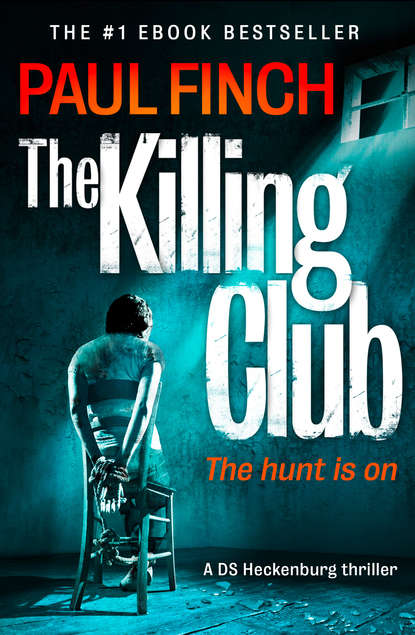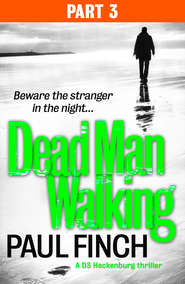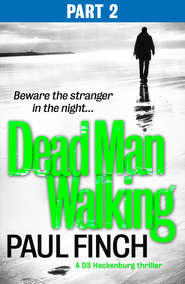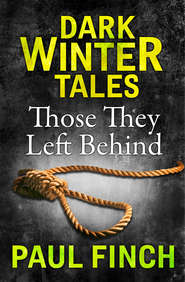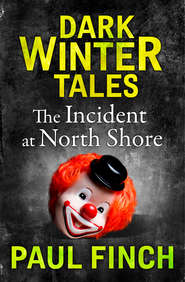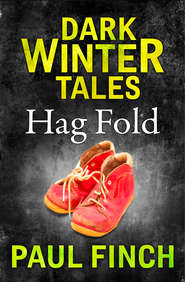По всем вопросам обращайтесь на: info@litportal.ru
(©) 2003-2025.
✖
The Killing Club
Автор
Год написания книги
2019
Настройки чтения
Размер шрифта
Высота строк
Поля
The older PC frowned. ‘Bit. From way back.’
‘Violence?’
‘Nothing serious.’
‘But now you say he’s got a big knife?’
‘Aye, but it’s not what you think. It’s a wartime memento … something his dad brought home. A kukri knife, you know. Antique now.’
Heck’s thoughts raced. The kukri knife – or khukuri, to be accurate – was that sharp, heavy, expertly curved weapon still used by Gurkha battalions in the British Army. It was infamously well designed to deliver a fatal stab wound, but was also known as a powerful chopping tool. And what was it one of the medical officers who’d examined the three murder victims had recently said? Something like: ‘The lacerations are deep – they’ve gone clean through the muscles of the oesophagus in a single incision. We’re talking a finely honed, but very heavy blade …’
‘Was Ernie Cooper a military man himself?’ Heck asked.
The older guy shrugged. ‘Not that I know of.’
‘Factory worker,’ the Asian PC said. ‘Retired early.’
‘Is he fit?’ Heck wondered. They exchanged glances, now more bewildered than irritated by the protracted nature of the interrogation. ‘What I mean is … can he run? Seriously fellas, this could be important.’
Blondie shrugged. ‘Seen him jogging. Used to be part of the Osprey Running Club, I think … ultra-distance. Probably knocking on a bit for that now.’
‘Nah, I still see him running,’ the Asian PC said. ‘On his own, like. Don’t see him running with anyone else. Never have, to be honest.’
‘And you say his dad was a commando?’
‘Aye …’ Blondie confirmed. ‘Bert Cooper. Well-known character up the East End. War hero like.’
‘Commando?’ Heck said. ‘Don’t suppose you can be any more specific?’
‘He wasn’t a commando,’ the Asian replied. ‘I read his obit in the paper. He was a para. He was in the desert and at Pegasus Bridge.’
‘Aye, Pegasus Bridge,’ Blondie said. ‘That was where he won his medals. Remember my dad saying.’
Heck sat back. ‘I’d like to meet Ernie Cooper, if you don’t mind.’
The older PC shrugged. ‘We don’t mind. Why should we?’ He rummaged in his jacket pocket. ‘Can give you his addy right now.’
‘Might be easier if you were to introduce me to him,’ Heck said. ‘Help break the ice maybe.’
The older PC glanced at his mates as if he couldn’t believe the audacity of such a request. ‘Before or after I’ve had my nosh?’
Heck stood up. ‘I’ll probably need an hour actually. Can you meet me downstairs at two?’
‘Well … suppose I can put this lot away in an hour.’ The older PC indicated his plate, which was piled with chips, eggs, sausage, beans and buttered bread. In less charitable mode, Heck might have commented that considering his bulk, which, now he was seated, bulged over his waistband and utility belt like a stack of tyres, the guy would be lucky to live through the next hour, but that would hardly help.
Besides, his thoughts were now on other things.
Like the Leibstandarte.
‘What?’ Jerry Farthing said – that was the older PC’s name. ‘The Leibstan-what?’
‘Full title … 1st SS Division Leibstandarte,’ Heck said from the front passenger seat of Farthing’s patrol car.
Farthing drove thoughtfully on. ‘Nazis, yeah?’
‘Frontline shock-troops. Total fanatics. Most of them had been recruited from the Hitler Youth when they were still too young to see through the Führer’s bullshit.’
Farthing looked puzzled. Up close, he gave off a faintly sour odour – sweat, unwashed armpits. He hadn’t shaved particularly well that morning; his leathery, pockmarked cheeks were covered with nicks. ‘I’m sure this is leading somewhere … I just hope it’s worth it.’
‘There was one place where we saw the Leibstandarte at their best.’ Heck checked a mass of notes he’d recently scribbled in his notebook. ‘Wormhoudt. A farming area near Dunkirk. That’s where they murdered a bunch of British POWs with machine guns and grenades. Eighty men died … after they’d surrendered.’
‘Nasty.’ But Farthing still looked baffled as to how this concerned him.
‘That was in 1940,’ Heck said. ‘In 1945 it was the other way around. Then, the 1st SS Division were in the rear-guard as Hitler’s forces fell back into Germany. That April, quite a few of them got captured by British airborne forces at Luneburg. Ever heard of Luneburg, Jerry?’
‘Can’t say I have.’
‘Well … if someone else had won the war, it would have gone down as a place of infamy. It’d be regarded as the scene of a notorious war-crime.’
‘I’m guessing we got payback for Wormhoudt?’
‘At least forty members of the Leibstandarte were executed on the spot.’
‘What goes around comes around.’
‘Yeah. It was war. What’s interesting to us, though, is the method of the execution.’
‘Okay …?’
This train of thought hadn’t occurred to Heck straight away on hearing that Ernie Cooper’s father had been a commando in World War Two, or that Cooper himself was a World War Two obsessive. But then the word ‘para’ had been mentioned, and it had jogged Heck’s memory again – this time significantly.
The other thing, of course, was the wire.
‘The British paratroopers who grabbed those SS men made them run the gauntlet,’ Heck said. ‘You know what that means?’
‘Aye. Blokes line up on either side and hit them with rifle butts while they run down the middle.’
‘Rifle butts, spades, trenching tools, anything,’ Heck said. ‘After that – and this is something I knew I’d read about once before – they tied them to posts … according to some accounts, with barbed wire.’
‘Jesus,’ Farthing said. Then the parallel seemed to dawn on him. ‘Jesus! … Are you serious?’
‘Then they cut their throats.’
‘Throats …’ Briefly, Farthing was almost distracted from driving. ‘Okay, there’s a similarity with the way Nathan Crabtree copped it …’
‘More or less with the way they all copped it …’
‘Yeah, but that was probably nothing to do with Bert Cooper.’





